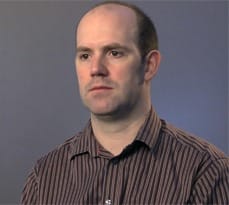The tiny, credit card-sized computer, Raspberry Pi, has outsold the targets predicted by its Cambridge-based designers, reaching a million sales in 12 months.
In its second year the Raspberry Pi Foundation hopes to continue selling at current volumes in existing markets and aims to address geographic deficits.
According to Cambridge Judge Business School alumnus Dr Eben Upton of the Raspberry Pi Foundation, “It would be nice if at the end of this year we’re selling strongly in at least one of Brazil, India, China. We have a good strategy for China so it’ll be interesting to see if we can get one of India or Brazil as well.”
Dr Upton, an alumnus of the Cambridge Executive MBA, feels that the Raspberry Pi focus is now swinging from an ‘hobbiest’ platform to the educational platform envisaged by its designers.
“We’re also starting to see industrial applications. We’re starting to see people designing the Pi into other industrial products, factory control products and home automation products.”
In an interview for Cambridge Judge Business School’s website, Dr Upton says Raspberry Pi can be seen as part of a package aimed at resolving issues around computing education and rekindling the interest of young people.
He feels that computing education can be compared to teaching music where children need 3 things – formal teaching, a device to practice on and the instrument itself.
“We need all 3 of those things. Obviously Pi offers the device and at a price point that allows children to earn it themselves and have it their bedroom, but I think that the other equally important part is that it’s improving the quality of the formal computing teaching we have in schools.”
Since its launch the computer has been used in many applications. Dr Upton’s favourite was ‘Pi in the Sky’, where one south-of-England enthusiast hitched his Pi to a weather balloon and released it 40 kilometres up to the edge of space to beam down live pictures.
“I’m a real space cadet and that’s the sort of thing I really enjoy,” adds Dr Upton, who lists among other uses automation in the home, control of robots, applications for remote camera rigs and time lapse photography, as well as various home-related operations.
Dr Upton says his Executive MBA programme at Cambridge Judge Business School helped him approach the Raspberry Pi project in a structured way rather than muddling through. It assisted with brand development and also helped deal with limitations encountered when a not-for-profit foundation tries to raise capital for mass production.


